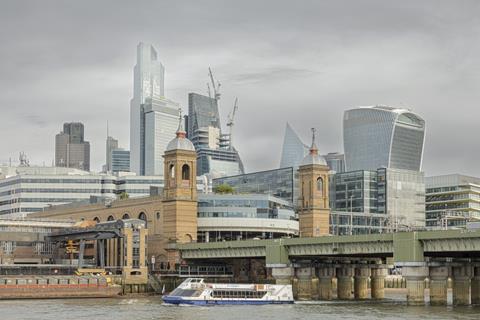New research shows 87% of firms are now most worried about vulnerability of suppliers
The vast majority of contractors say supply chain fragility has taken over from material costs as the greatest risk they face, according to a new report by RLB.
Nearly nine out of 10 surveyed firms said suppliers vulnerable to market and procurement risks now posed more of a threat than product price inflation.
RLB, which is cost consultant on the 43-storey Bury House scheme in the City, said the findings reflect a changing procurement landscape where the “long-term operating models of contractors have been questioned”.

It added that clients are now realising the risk that supply chain fragility poses to their own operating models.
RLB head of industry and service insight Paul Beeston said: “For a procurement strategy to be successful, it must not just meet client objectives but also understand market context and what the supply chain finds viable.
“While our latest Procurement Trends report shows an increase in collaborative working and risk sharing in response to tougher market conditions, there is still a long way to go for procurement practices to really deliver better outcomes.”
More than half, 54%, of contractors responding to the survey said they had seen increasing collaborative practices in procurement while 35% of contractors state that clients are more willing to share risk.
The most collaborative routes to market are generally being found on smaller projects, fit-outs and refurbishment works, with the highest competitive levels displayed on small to mid-sized projects from £5m to £7.5m and within the retail and infrastructure sectors.
The report also found that 6% fewer projects were being negotiated compared to 2023, while there had been an 8% year-on-year increase in the use of two-stage tendering.
London and the South-east regions were found to have the highest proportion of two-stage tendering at 42% of all projects, while Yorkshire & Humber and the South-west have the highest proportion of single-stage tendering at 38%
More than two-thirds, 67%, of projects are now adopting design and build forms of contract, the highest proportion since 2019, and a 9% increase year on year, the report found.
The analysis also found a 19% increase in contractors reporting they are being asked to provide whole life carbon assessments on schemes, from 14% last year to 33% in 2024.
The report comes after cost consultant Exigere said looking after cashflow and getting access to credit were the biggest concerns among façade contractors amid a reluctance to bid for projects which have insufficiently developed designs.
Another QS, Core Five, also said last week that bigger jobs were becoming more expensive because of a limited number of firms able to carry out the work.


























No comments yet